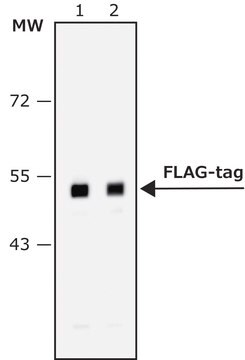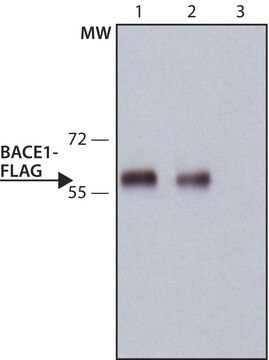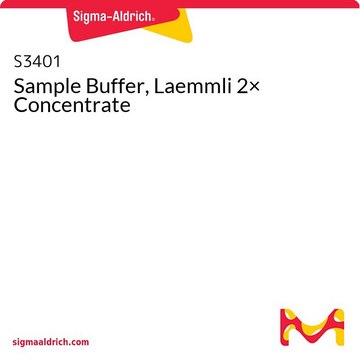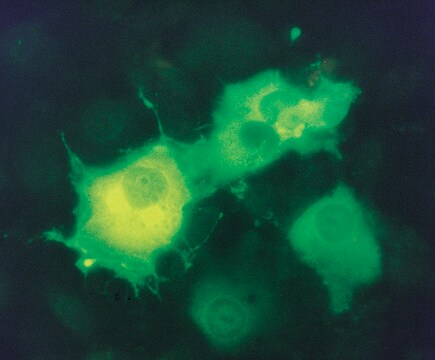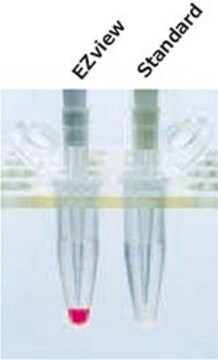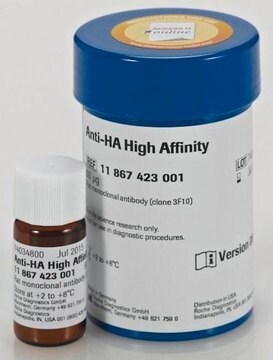SAB4200119
Monoclonal Anti-FLAG-Peroxidase antibody produced in rat
2-4 mg/mL, clone 6F7, purified immunoglobulin
Sinónimos:
Anti-ddddk, Anti-dykddddk
About This Item
Productos recomendados
biological source
rat
Quality Level
conjugate
peroxidase conjugate
antibody form
purified immunoglobulin
antibody product type
primary antibodies
clone
6F7, monoclonal
form
buffered aqueous solution
species reactivity
all
concentration
2-4 mg/mL
technique(s)
western blot: 1:1,000-1:2,000 using extracts of transfected cells expressing C-terminal FLAG-tagged fusion protein
isotype
IgG1
immunogen sequence
DYKDDDDK
shipped in
dry ice
storage temp.
−20°C
General description
Immunogen
Application
Physical form
Legal Information
¿No encuentra el producto adecuado?
Pruebe nuestro Herramienta de selección de productos.
Storage Class
10 - Combustible liquids
flash_point_f
Not applicable
flash_point_c
Not applicable
Certificados de análisis (COA)
Busque Certificados de análisis (COA) introduciendo el número de lote del producto. Los números de lote se encuentran en la etiqueta del producto después de las palabras «Lot» o «Batch»
¿Ya tiene este producto?
Encuentre la documentación para los productos que ha comprado recientemente en la Biblioteca de documentos.
Los clientes también vieron
Nuestro equipo de científicos tiene experiencia en todas las áreas de investigación: Ciencias de la vida, Ciencia de los materiales, Síntesis química, Cromatografía, Analítica y muchas otras.
Póngase en contacto con el Servicio técnico
